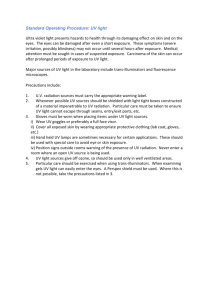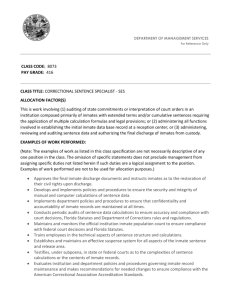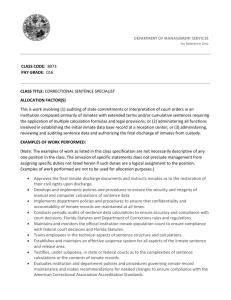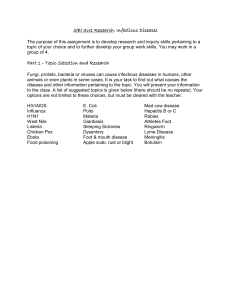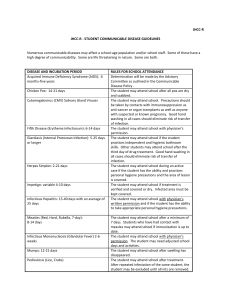MS Word Version - Kairos of Georgia
advertisement
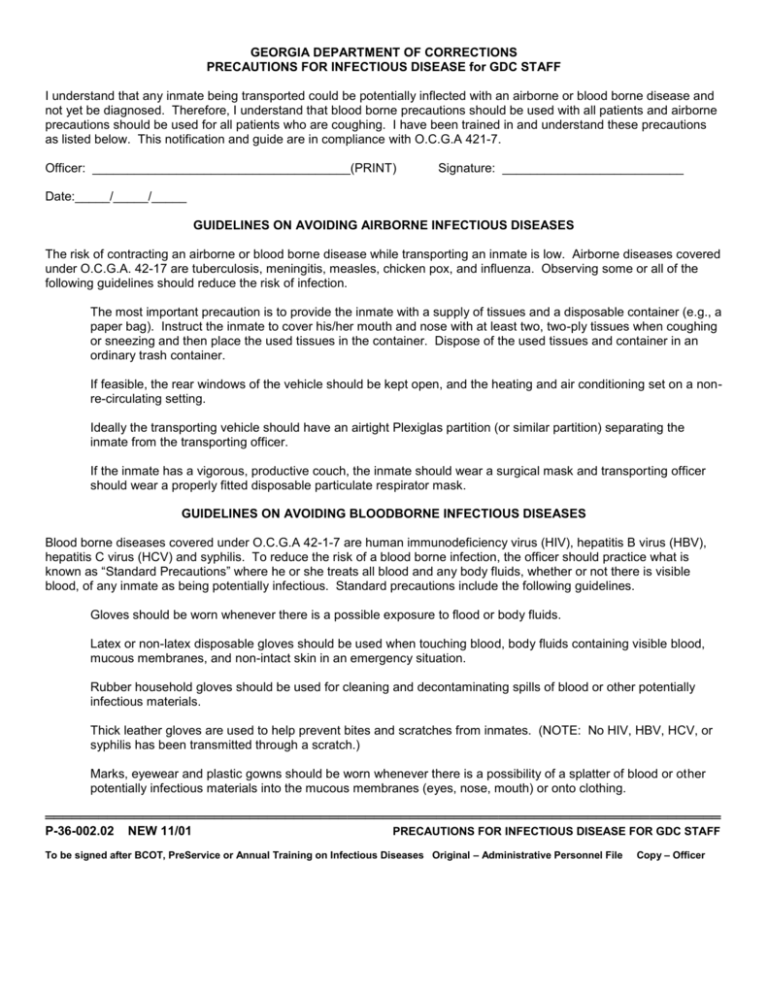
GEORGIA DEPARTMENT OF CORRECTIONS PRECAUTIONS FOR INFECTIOUS DISEASE for GDC STAFF I understand that any inmate being transported could be potentially inflected with an airborne or blood borne disease and not yet be diagnosed. Therefore, I understand that blood borne precautions should be used with all patients and airborne precautions should be used for all patients who are coughing. I have been trained in and understand these precautions as listed below. This notification and guide are in compliance with O.C.G.A 421-7. Officer: _____________________________________(PRINT) Signature: __________________________ Date:_____/_____/_____ GUIDELINES ON AVOIDING AIRBORNE INFECTIOUS DISEASES The risk of contracting an airborne or blood borne disease while transporting an inmate is low. Airborne diseases covered under O.C.G.A. 42-17 are tuberculosis, meningitis, measles, chicken pox, and influenza. Observing some or all of the following guidelines should reduce the risk of infection. The most important precaution is to provide the inmate with a supply of tissues and a disposable container (e.g., a paper bag). Instruct the inmate to cover his/her mouth and nose with at least two, two-ply tissues when coughing or sneezing and then place the used tissues in the container. Dispose of the used tissues and container in an ordinary trash container. If feasible, the rear windows of the vehicle should be kept open, and the heating and air conditioning set on a nonre-circulating setting. Ideally the transporting vehicle should have an airtight Plexiglas partition (or similar partition) separating the inmate from the transporting officer. If the inmate has a vigorous, productive couch, the inmate should wear a surgical mask and transporting officer should wear a properly fitted disposable particulate respirator mask. GUIDELINES ON AVOIDING BLOODBORNE INFECTIOUS DISEASES Blood borne diseases covered under O.C.G.A 42-1-7 are human immunodeficiency virus (HIV), hepatitis B virus (HBV), hepatitis C virus (HCV) and syphilis. To reduce the risk of a blood borne infection, the officer should practice what is known as “Standard Precautions” where he or she treats all blood and any body fluids, whether or not there is visible blood, of any inmate as being potentially infectious. Standard precautions include the following guidelines. Gloves should be worn whenever there is a possible exposure to flood or body fluids. Latex or non-latex disposable gloves should be used when touching blood, body fluids containing visible blood, mucous membranes, and non-intact skin in an emergency situation. Rubber household gloves should be used for cleaning and decontaminating spills of blood or other potentially infectious materials. Thick leather gloves are used to help prevent bites and scratches from inmates. (NOTE: No HIV, HBV, HCV, or syphilis has been transmitted through a scratch.) Marks, eyewear and plastic gowns should be worn whenever there is a possibility of a splatter of blood or other potentially infectious materials into the mucous membranes (eyes, nose, mouth) or onto clothing. ════════════════════════════════════════════════════════════════════════════ P-36-002.02 NEW 11/01 PRECAUTIONS FOR INFECTIOUS DISEASE FOR GDC STAFF To be signed after BCOT, PreService or Annual Training on Infectious Diseases Original – Administrative Personnel File Copy – Officer

